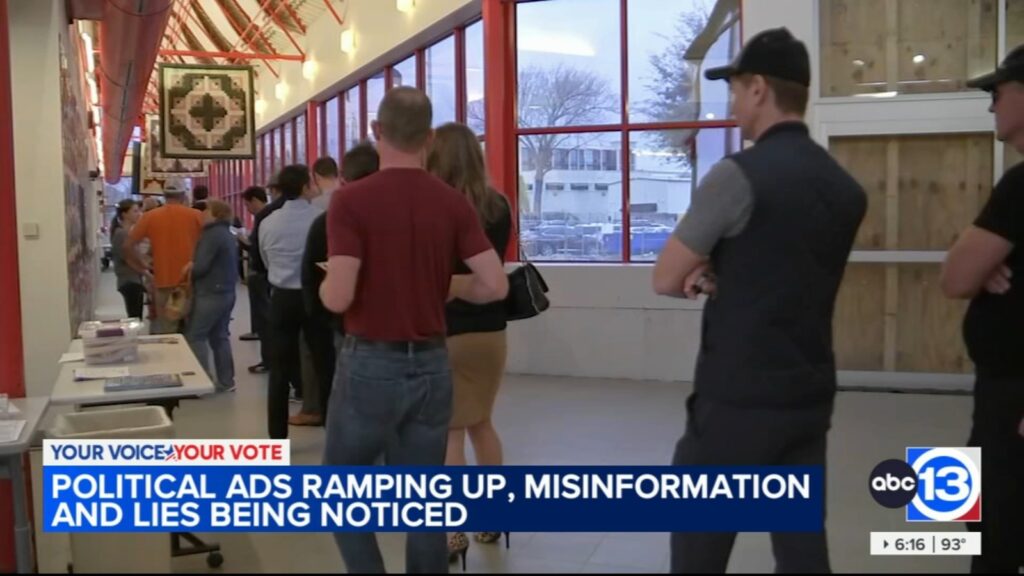HOUSTON, Texas (KTRK) — Voter David Cardenas tells ABC13 he’s been rethinking many of his political claims over the past few election cycles.
“Whether I support a candidate or not, I think I tend to be a little bit pessimistic and think, ‘Oh, is that true or is it not true?'” Cardenas said.
And he’s not alone.
“Each ad is just an expression of what they want to say in that moment,” said voter Carson Spiegel.
Should these voters be worried that politicians can lie freely and openly over the airwaves?
“In some situations, yes,” said Bob Stein, a political science professor at Rice University.
Stein said the Federal Communications Commission, which regulates network television, does not regulate political advertising, unlike the Federal Trade Commission, which does not allow false advertising in commercial advertising.
The FCC says by law that networks like ABC13 must air ads for all political candidates, regardless of content.
“You can say whatever you want, that’s freedom of speech,” Stein said.
Private companies such as cable news and social media can refuse commercials. In more recent history, CNN has refused to air several Trump ads because they contain falsehoods.
“You buy cable TV the same way you buy newspapers and magazines, so it’s not regulated like broadcast news,” Stein said.
It’s not new for politicians to lie in advertising. Stein said the cause goes back to the U.S. government’s vision, which often makes the situation worse when people are very close to each other, either regionally or nationally.
“When things get close, people do what they think will give them the space to make a change, and if lying or misrepresenting the truth helps the election, so be it,” Stein said.
Stein advises voters who have questions about ads to do their own research on the topic and have multiple reliable sources to confirm or debunk what they’ve heard.
For the latest news, follow Liliana Pearson on Facebook. × And Instagram.
Copyright © 2024 KTRK-TV. All rights reserved.

